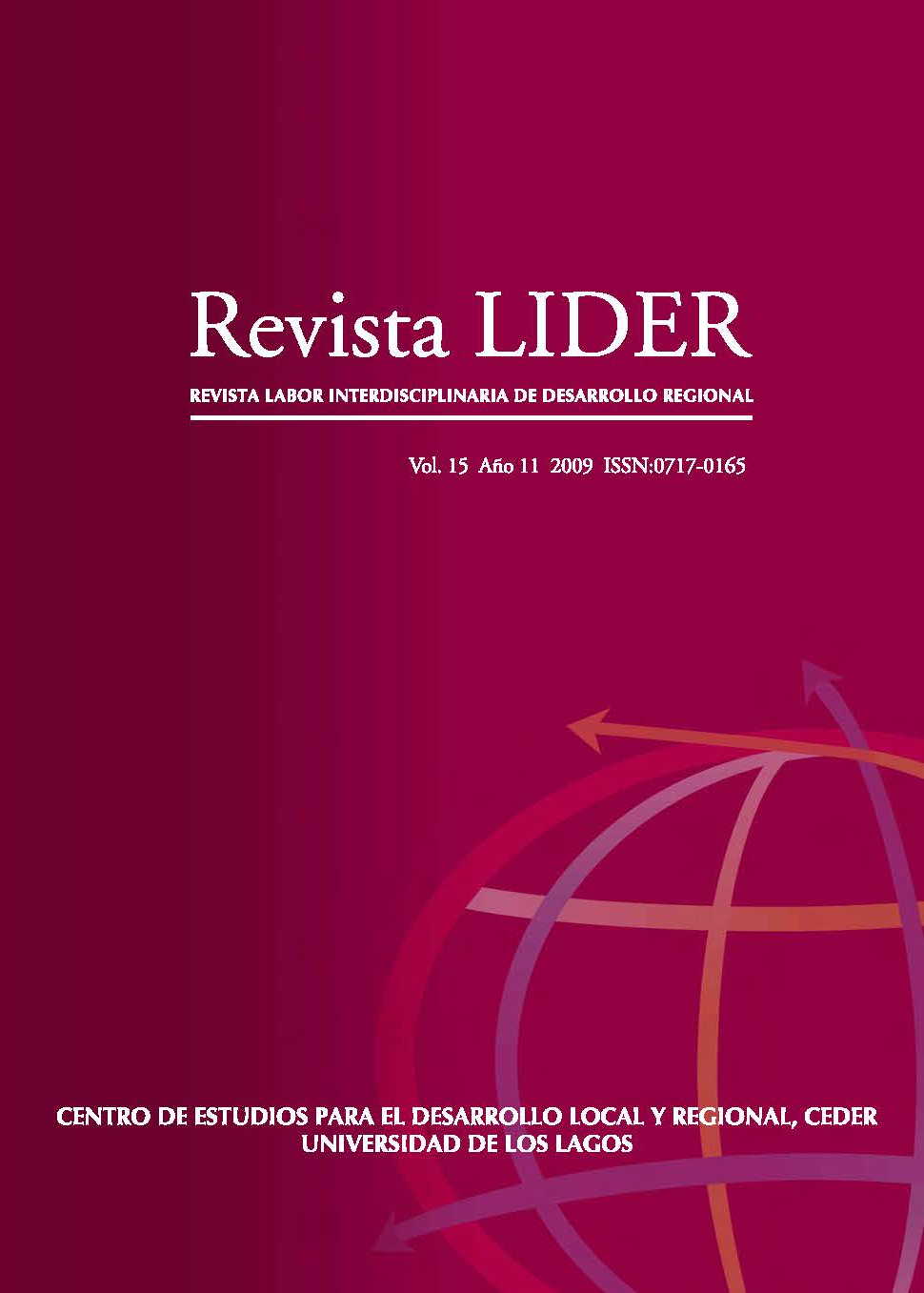Socio-territorial differences and inequalities in the Northern Patagonia of Argentina
Main Article Content
Section: ARTÍCULOS DE INVESTIGACIÓN
Abstract
Demographic differences (sex, age, birth place), as well as social differences (social class, house and land tenancy, activity condition and education level) affects the Quality of Life. The analysis of two surveys carried out in San Carlos de Bariloche, Argentina in 1997 and 2005, a period of both crisis and economic improvement of the tourist sector, allows the observation of the behaviors of these differences in relation to the Poverty Integrated Assessment. This analysis shows that, with the exception of sex and partially the age, the relationship between birth place and its combination with the other two variables, as well as social differences sustain the hypothesis of the research. Geographical location delimits fields of social and territorial inequalities that correlate with lower temperatures. In spite of the recovery of employment levels and the relative and absolute decrease of the extreme categories of poverty, other factors such as great demographic growth, the quality leap and tourist differentiation still absent, together with a persistent inequality structure in relation to education levels and employment quality, suggest that the gap has not been closed, appearing, in consequence, new types of poverty and new poor.
Article Details
Abaleron, C. A. (2021). Socio-territorial differences and inequalities in the Northern Patagonia of Argentina. Revista LIDER, 11(15), 179-208. Retrieved from https://revistaliderchile.ulagos.cl/index.php/liderchile/article/view/2316
Downloads
Download data is not yet available.

This work is licensed under a Creative Commons Attribution-NonCommercial-ShareAlike 4.0 International License.
